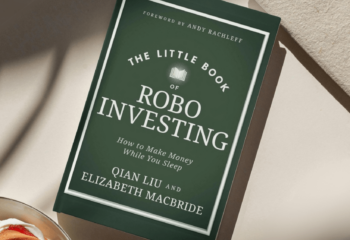Whether you’re a new investor getting started for the first time or a seasoned investor looking to invest more, it can be tempting to wait for the “right time” to invest. And when the US stock market is at an all-time high (as it has been multiple times so far in early 2024) it might not feel like the right time.
But that way of thinking is flawed. In this post, we’ll look at historical market data to help you feel more confident about investing even when the US stock market is at an all-time high.
“Buy low, sell high” is a form of market timing
You’ve probably heard the common investing advice to “buy low, sell high,” meaning you should purchase stocks when the price is low, then sell them when prices are high. This is nice in theory, but the unfortunate reality is that it is virtually impossible to do consistently. Trying to buy low and sell high is known as “market timing,” and even professional investors can’t consistently get it right over time—this is well documented in studies like the annual SPIVA report. A risk of market timing is that you might wait too long to start investing and miss out on potential returns if the market continues to climb.
Instead of trying to time the market, we think you should focus on what you can control: controlling your risk (through diversification and rebalancing), lowering your taxes, and lowering your fees. Day-to-day market movements are squarely out of your control, so we don’t think you should give them much thought.
It doesn’t matter that the market is at an all-time high
Even if you don’t consider yourself a market timer, you might get nervous about investing if the media and your friends tell you the market is at an all-time high. If you’re tempted to defer investing for this reason, remember that the US stock market hits all-time highs fairly frequently. Every all-time high is just an all-time high so far. The market can go up more, and it often does.
To illustrate this point, we analyzed US total stock market returns using Kenneth French’s US stock market return series from July 1, 1926 to December 29, 2023. We found that 9.8% of all trading days during that time period were all-time highs. On average, that means the US stock market has hit an all-time high one out of every 10.22 days over the last 97.5 years. How could this be? It’s important to remember that the general trend of the total US stock market has been positive over the last almost-century. The graph below illustrates this by showing the growth of $1 from July 1926 through December 2023, plotted on a logarithmic scale.

The US stock market is unpredictable in the short term. However, as you can see in the chart above, it has historically been more predictable over the long term (although there are still several periods of overall declines following prior peaks). Since 1926, the US stock market has closed the calendar year higher than it closed the previous year 76% of the time. If you look at five-calendar-year time periods instead, that number is 94%.
This general upward trend means that if you decide not to invest when the market is at an all-time high, it’s possible you’ll miss the next all-time high. Let’s say, for example, you noticed the market was at an all-time high a bit less than five years ago on April 23, 2019. (We chose this date because it’s in line with our general rule of thumb that investors should have a time horizon of at least 3-5 years.) You might have assumed that it was a bad time to invest—but in fact, between April 23, 2019 and the end of 2023, the market reached an all-time high an additional 146 times.
It’s important to note that the distribution of all-time highs is quite lumpy. Some years have dozens of days that are all-time highs, while others have none (66% of all years in our analysis from 1926-2023 had at least one all-time high, and 35% of all months in our analysis had at least one all-time high). Since it isn’t possible to consistently predict these highs before they happen, the only way to avoid missing them is to invest regardless of what the market is doing.
The US stock market should only be part of your portfolio
Our analysis in this post focuses on the US stock market because it tends to get a lot of media attention and comprise a chunk of many investors’ portfolios, but investors should keep in mind that US stock market exposure is just one piece of a well diversified portfolio.
Diversification involves buying a variety of different investments (and different types of investments, known as asset classes), and it is important because it helps balance out risk and reward in your portfolio. US stocks are just one asset class, and different asset classes tend to perform relatively better or worse each year. In other words, just because US stocks fare better than natural resources (for example) one year, there’s no guarantee that will be true in the future. The solution is to own a bunch of different asset classes so you increase your odds of owning that year’s winners, whatever they are. Nobel Prize-winning economist Harry Markowitz famously said that diversification is the only free lunch in investing.
At Wealthfront, it’s no secret that we think it’s wise to invest in a diversified portfolio of low-cost index funds like Wealthfront’s Classic portfolio. When you buy a diversified portfolio that holds relatively non-correlated asset classes, you’re more insulated from volatility in any given asset class because when some asset classes are down, others may be up. So even if you invest on a day when the US stock market is at a peak and it loses value over the short term, it’s very possible other investments in your portfolio will help soften the blow or even make up for those losses.
The takeaway: Don’t let an all-time high keep you from investing
If you’re still feeling nervous investing on the “wrong” day, we recommend checking out our blog post on dollar-cost averaging and this letter to investors from Burton Malkiel and Alex Michalka. Setting up a small recurring deposit to spread your investment out over time might help ease your fear.
The US stock market may be at or near an all-time high, but that shouldn’t affect your decision to invest. The US stock market has hit many all-time highs before, and there’s every reason to believe it will continue to do so. The advice to “buy low and sell high” is virtually impossible to follow (even for professional investors) and you shouldn’t bother trying. You’re far more likely to come out ahead if you put your money into a diversified portfolio and leave it there.
Disclosure
The information contained in this communication is provided for general informational purposes only, and should not be construed as investment or tax advice. Nothing in this communication should be construed as a solicitation, offer or recommendation to buy or sell any security. Any links provided to other server sites are offered as a matter of convenience and are not intended to imply that Wealthfront Advisers, Wealthfront Brokerage or any affiliate endorses, sponsors, promotes and/or is affiliated with the owners of or participants in those sites, or endorses any information contained on those sites, unless expressly stated otherwise.
All investing involves risk, including the possible loss of money you invest, and past performance does not guarantee future performance. Please see our Full Disclosure for important details.
Investment management and advisory services are provided by Wealthfront Advisers LLC (“Wealthfront Advisers”), an SEC-registered investment adviser, and brokerage related products, including the Cash Account, are provided by Wealthfront Brokerage LLC, a Member of FINRA/SIPC.
Wealthfront, Wealthfront Advisers and Wealthfront Brokerage are wholly owned subsidiaries of Wealthfront Corporation.
Copyright 2024 Wealthfront Corporation. All rights reserved
About the author(s)
Fang Rui is a Chartered Financial Analyst (CFA) and an investment researcher at Wealthfront. Prior to Wealthfront, Fang spent nearly a decade at BlackRock where she worked in ETF and index research as well as risk management. She earned a Master of Science in Industrial Engineering and Operations Research from University of California, Berkeley and earned a Bachelor of Science in Engineering with a major in Operations Research and Financial Engineering from Princeton University. View all posts by Fang Rui, CFA



